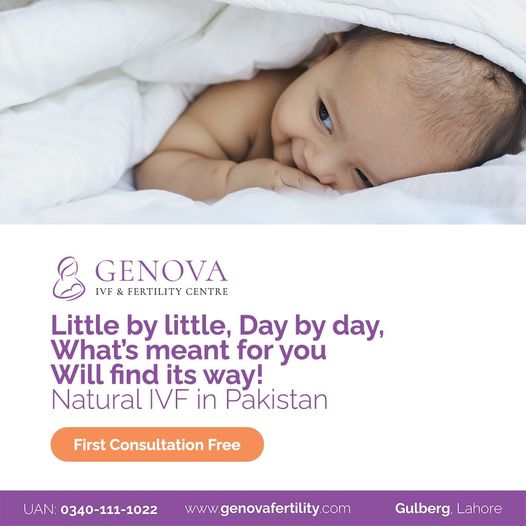what is PCOS: definition and causes
Behind the strange name PCOS (pronounced detached letters: PCOS) hides the Poly-cystic Ovary Syndrome.
It is an endocrine pathology, a dysfunction of the glands releasing hormones.
Here, what characterizes PCOS is the increased production of androgens (so-called male hormones) in the ovaries.
This causes many disturbances in the body and the life of those affected.
Its name comes from one of the aspects of this syndrome: the growth of the follicles being upset. Many around the ovaries refuse to grow, which looks like an ultrasound full of small cysts. But PCOS has many other symptoms that are much more visible daily.
Use your period panties like everyday panties, and forget about your period! Our menstrual panties are made of organic cotton, soft for your vulva, comfortable, and absorbent until midnight.
Symptoms of poly-cystic ovary syndrome (PCOS)
On a day-to-day basis, PCOS can manifest itself through many symptoms, the most common being:
- Irregular, infrequent, or absent periods,
- Hirsutism, which is excessive hair growth in typically hairless areas, such as the chin, cheeks, or back
- acne,
- substantial weight gain or obesity,
- difficulty conceiving (infertility).
However, not everyone affected by this syndrome shares all of these symptoms, and having these symptoms is not necessarily synonymous with PCOS.
This is the difficulty of diagnosing PCOS…
PCOS: How is poly-cystic ovary syndrome diagnosed?
“The symptoms aren’t as outspoken as in other illnesses, and some people don’t even realize they’re abnormal.
For example, the first sign is often having irregular cycles, which is common in adolescence. Many people in whom it continues then do not ask questions, and the diagnosis is only made years later when they encounter infertility, for example. »
The procedure for establishing the diagnosis is not simple: the doctor should request an analysis of the cycles, a clinical examination, an endovaginal ultrasound of the ovaries, and hormonal assays.
Suffering from acne in adulthood and having longer cycles, she decides one day to consult a gynecologist who will give her a first hormonal assessment. Rates are normal.
“I was really distraught and pissed off. I felt bad knowing that my body was malfunctioning, with no solution.
Fortunately, she then meets an endocrinologist who teaches her that there are several male hormones and that those indicated on the balance sheet she was given do not affect PCOS. She passes a new assessment and discovers a high rate, validating the diagnosis of PCOS. A relief for her.
the consequences of poly-cystic ovary syndrome (PCOS) on health
The consequences of PCOS can initially be psychological.
Even if this does not necessarily have a severe impact on health, persistent acne in adulthood, excessive hairiness, or even being overweight can cause many complexes and isolation.
Sara says:
“The acne I had was already making me lose all my self-confidence. My skin hurt, so I never forgot that I had acne. I left the light off in the bathroom to avoid having to meet my reflection in the mirror….”
Subsequently, one of the most frequent consequences of PCOS is infertility, which we will discuss in detail next.
And over the very long term, PCOS increases the risk of metabolic syndromes, such as high blood pressure or a blood sugar disorder, which can lead to diabetes. On the other hand, PCOS increases the risk of endometrial cancer.
infertility and pregnancy with poly-cystic ovary syndrome (PCOS)
In Pakistan, PCOS is the leading cause of infertility in women.
The reason is simple: cycles longer than 35 days are considered anovulatory, and PCOS disrupts cycles. Thus some people affected never ovulate, or barely 2 or 3 times a year.
“A lot of patients with PCOS don’t have a problem getting pregnant. And when PCOS isn’t too complicated but seems to be causing infertility, ovarian stimulation may be enough to achieve pregnancy.
As a last resort, IVF is also possible.
She explains that she took the news with philosophy.
“I don’t want a child right away, and that caused a lot of thinking about whether I wanted to have a child or not. That said, my endocrinologist was reassuring on the subject and I don’t stress too much about it.
treatments for poly-cystic ovary syndrome (PCOS)
It is essential to note that pcos specialist in lahore are saying there is no cure for PCOS. There is no specific treatment for poly-cystic ovary syndrome, but there are some to calm the symptoms that bother you.
For example, against hyperandrogenism (hirsutism and acne), hormonal contraception may be sufficient to regulate the body.
Against infertility, an ovulation inducer can be prescribed (allowing pregnancy in 35 to 40% of patients). If this does not work, IVF is possible.
In general, a healthy lifestyle prevents possible complications.
In short, even if you can never cure your PCOS, consulting a doctor allows you to find solutions to live it better and, who knows, forget it!
RECOMMENDED ARTICLE: Do You Design The Best ulka pump parts?







